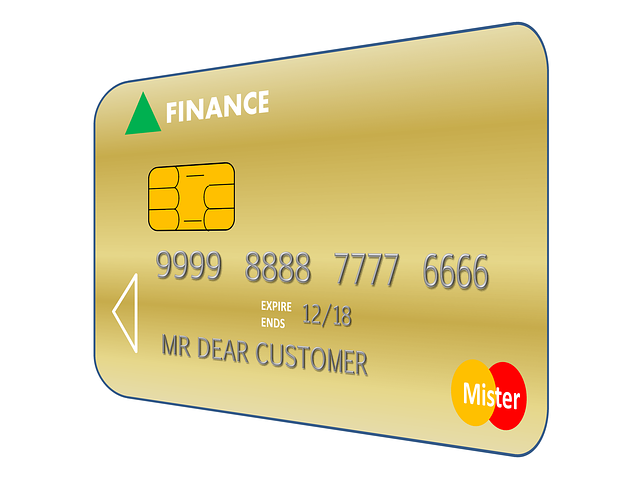Personal debt consolidation loans simplify multiple debts into one with lower interest, improving repayment management and potentially boosting credit scores. Select suitable loan types and lenders, compare offers, prioritize high-interest debts, and leverage tax benefits. Post-consolidation, focus on budget creation, responsible borrowing, and swift loan repayments to ensure financial stability and independence.
“Unshackle yourself from financial burden with smart consolidation. This comprehensive guide explores personal debt consolidation loans—a powerful tool for managing and reducing debt. Discover how consolidating debts can simplify repayment, lower interest rates, and provide a clear financial path to independence. We’ll navigate the process, from understanding loan options like balance transfer cards and unsecured loans, to effective strategies for repaying and building stability after consolidation. Empower yourself with knowledge.”
- Understanding Personal Debt Consolidation Loans
- Benefits of Consolidating Debts
- Choosing the Right Loan Type and Lender
- Effective Strategies for Repaying Consolidated Loans
- Building Financial Stability After Consolidation
Understanding Personal Debt Consolidation Loans

Personal Debt Consolidation Loans offer a strategic approach to managing multiple debts by combining them into a single loan with a lower interest rate. This simplifies the repayment process, making it easier for individuals to stay on top of their financial obligations. By consolidating debt, borrowers can significantly reduce the amount they pay in interest over time, which is especially beneficial for those burdened by high-interest credit card debt or multiple loans with varying terms.
Debt consolidation calculators are useful tools that help individuals determine the potential savings and repayment timelines associated with consolidating their debts. These calculators factor in the current balance, interest rates, and loan terms to offer a clear picture of how personal debt consolidation loans can streamline financial commitments. Additionally, understanding different debt restructuring strategies can empower individuals to make informed decisions about consoliding their debts, ultimately leading to better financial health and independence.
Benefits of Consolidating Debts

Debt consolidation offers a multitude of benefits for individuals burdened by personal debt. By combining multiple debts into a single loan with a lower interest rate, borrowers can simplify their financial obligations and save money on interest payments. This streamlined approach makes it easier to manage repayments, as there’s only one payment to track and remember each month. Additionally, personal debt consolidation loans often come with flexible repayment terms, allowing borrowers to tailor their payments to fit their budget.
Beyond individual financial relief, debt consolidation can have a positive impact on credit scores. Timely repayments of a consolidated loan can demonstrate responsible borrowing habits to creditors, potentially leading to improved access to future credit and better interest rates. Moreover, debt management programs that incorporate consolidation strategies can provide borrowers with the tools and guidance needed to regain control of their finances, ultimately paving the way for long-term financial stability and independence.
Choosing the Right Loan Type and Lender

When considering personal debt consolidation loans, it’s crucial to make informed choices to achieve financial independence. The first step involves selecting the right loan type tailored to your needs. Traditional debt consolidation loans offer a fixed interest rate and a single monthly payment, simplifying repayment. On the other hand, home equity loans or lines of credit may provide more flexibility but come with potential risks, like tapping into home equity.
Choosing the right lender is equally important. Reputable lenders offer transparent terms, competitive rates, and expert consolidation advice. They should provide clear information on loan amounts, interest rates, repayment terms, and any associated fees. Compare offers from multiple lenders to find the best fit that aligns with your goal of reducing your debt burden. Remember, understanding these options is key to making an informed decision that fits your financial situation and paves the way for a more manageable and independent future.
Effective Strategies for Repaying Consolidated Loans

Achieving financial independence through smart consolidation involves strategic approaches to repaying your consolidated loans effectively. One of the first steps is to prioritize high-interest debts, focusing on eliminating them swiftly. By targeting these debts first, individuals can significantly reduce the overall interest paid over time, saving money and accelerating their journey towards financial freedom.
Personal debt consolidation loans offer a structured path to repayment by combining multiple debts into one manageable loan. This approach simplifies billing and due dates, making it easier to stay on track. Moreover, comparing different loan options and considering factors like interest rates and terms can lead to the best deal. For those with bad credit, exploring specialized lenders or government-backed programs might provide more favorable conditions, ensuring accessibility despite financial challenges. The tax benefits of consolidation further incentivize this strategy by potentially reducing taxable income, adding another layer of savings. Ultimately, whether choosing debt settlement vs. consolidation, a well-planned repayment strategy remains crucial for achieving long-term financial independence.
Building Financial Stability After Consolidation

After successfully consolidating your personal debt through loans, the next step is to build and maintain financial stability. This involves creating a robust budget that allocates funds for essential expenses while freeing up extra cash for savings and investments. By adhering to a well-structured budget, you can gradually increase your savings rate, ensuring a solid financial buffer against unforeseen events.
Additionally, focusing on responsible borrowing practices is key. Avoid accumulating new debt and aim to pay off existing loans as quickly as possible. Debt restructuring strategies, such as making larger than minimum payments or negotiating lower interest rates, can help accelerate loan repayment. Remember, maintaining financial stability post-consolidation is about discipline, smart spending, and building a secure future, ultimately ensuring you avoid foreclosure with loans and achieving long-term financial independence.
Personal debt consolidation loans can be a powerful tool for managing and reducing financial obligations. By understanding the process, leveraging the benefits, and employing effective repayment strategies, individuals can achieve financial independence and stability. Choosing the right loan type and lender is crucial, and building upon that success ensures long-term financial health post-consolidation. Remember, smart consolidation is a key step towards a brighter financial future.
